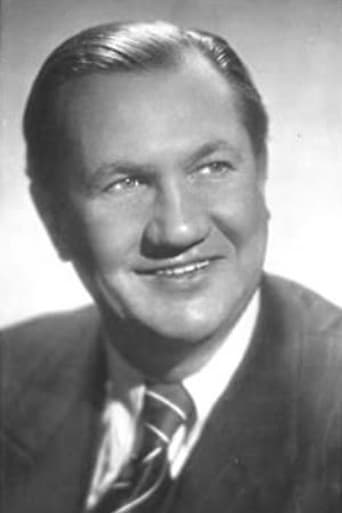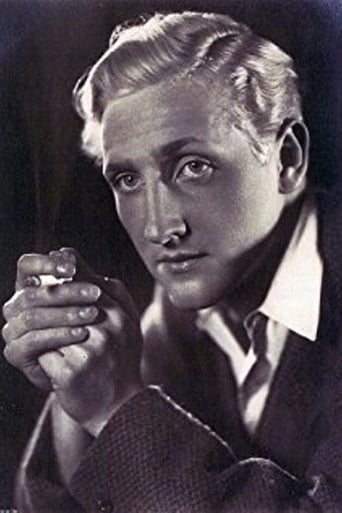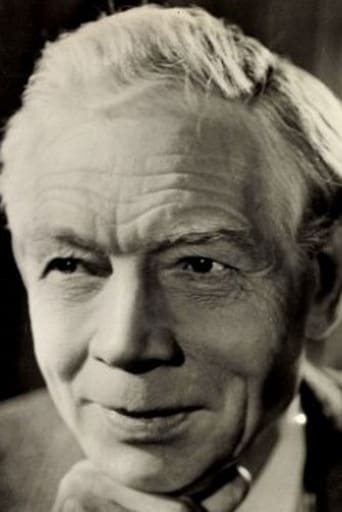Diagonaldi
Very well executed
Cleveronix
A different way of telling a story
Sammy-Jo Cervantes
There are moments that feel comical, some horrific, and some downright inspiring but the tonal shifts hardly matter as the end results come to a film that's perfect for this time.
tobias_681
I generally liked Westfront 1918 but I have slightly mixed feelings towards it. Especially the combat scenes were incredible (and it's a major part of the movie so it shouldn't be undervalued). Close to the beginning there's a scene with a trench collapsing while there are still soldiers within. This more or less has engraved in my mind. Also generally the approach is really physical. Unlike many other WW I films it renders the battlefield very vast and barren. The climactic long battle which leads directly to the dreadful end at the camp is overall an incredible sequence. Which in my opinion grasps something that other WW I films do not. A lot of it is really connected to the social realism that was so integral to Pabst style. He has a fascinating and compelling take on it as the movie is general, yet not impersonal, apathetic or exploitative. It makes you see a much broader picture than most other war films. The delivery from the battlefield to the camp at the end plays out almost like a metaphor for institutionalized death, like being controlled by a machine. The squeezing of the soldiers under the collapsing trench also connects wonderfully to this imagery, empathizing the desperate position of the soldiers. The spare time spent at home and social establishment seems like an escape from this but it ultimately only draws the soldiers back in.The problem is though that while I greatly admire Pabst sensibilities and unique touches the film feels sort of fragmented and not that dynamic. I really didn't want to see that time spent of the front as I had the feeling I had seen it all before and I knew exactly where it was going and it's not particularly dramatized. It's quite dry in short. I don't really see this as a weakness in general (as keeping it realistic and relatable was essentially the goal of social realism) but it didn't work for me. I thought that the film felt kind of dated in that respect as I would argue that the film was immensely important when it was released but today a lot of the personal context (which people back then brought with them in form of their own experiences) is lost.
Emil Bakkum
The film Westfront 1918 is based on the novel "Vier von der Infanterie" (Four of the infantry) by the German Ernst Johannsen. Although I have some knowledge of the German literature, and read "Im Westen nichts Neues" (Remarque/Kramer) and "Jahrgang 1902" (Glaeser), this one was new for me. The First World War has actually been a popular theme for film makers. For some reason mainly the English-spoken films have managed to become part of film history, which is a pity, because we are naturally interested in the perspective of the most directly involved countrymen. Westfront 1918 fills in this gap. However, it would be unfair to praise Westfront 1918 only because of its origin, for it is in fact in all respects an excellent outline of the horrors of modern warfare. WWI has a special place in military history. In the second half of the nineteenth century the wars were often short encounters between professional armies, which hardly affected the population. However, by the end of the century the rise of imperialism had caused an arms race (something like the Cold War), which stupefied the common people. The technological progress began to allow for mass slaughter. Of course the artillery had become highly effective, but there were also the airplanes, the poisonous gas, the first armored cars and tanks, flame-throwers, machine guns etc. Surgery advanced dramatically. The mass destruction reached proportions, that surpassed the contemporary human imagination. Man lost what had remained of his innocence. It was this war, that ended the remaining absolute monarchies and even caused the birth of an entirely new society system in Russia. It created the first insane forms of art (Dada), and strongly furthered the foundation of pacifism and the League of Nations. The film Westfront 1918 fits into this aftermath. Except for the war there is not really a story line. We follow four soldiers doing their duty on the western front in France: Karl (the main character), the student, the Bavarian and the lieutenant. It starts idyllic, when they are quartered with a French family. They pass the time making music, and the student becomes involved in a love affair with the daughter. They visit a military theater, where two clowns (playing the violin and the guitar) annoy each other. But halfway the platoon is ordered to the trenches, and now the film gets grim. We see the life between barbed wire, the underground sleeping places, which sometimes collapse due to the continuous shelling. In battle the student is engaged in a wrestle with a French soldier, who drowns him in the pool in a bomb crater. Karl is granted leave, and on coming home catches his wife in bed with another man. Classic, but all too real. In tears she cries: "Why don't you stop this war!" Back to the front, Karl and the Bavarian get the special assignment (actually Karl volunteers) to man a forward machine gun hole during a mayor French offensive against their trenches. Here the film shows for several minutes the waves of French infantry and tanks attacking and storming the trenches and being gunned down like rats. The air is filled with smoke and exploding grenades. The Bavarian is fatally wounded. The lieutenant is driven into a state of shock and insanity, continuously crying "Zur Befehl, Majestaet!" and "Hurrah!" (the then popular yell during a military storm). Karl is also wounded, and brought to a military field hospital. The misery is beyond belief. A soldier crying: "Ich habe keine Beine!" (no legs). The hospital orderly: "Du hast doch noch Arme! Denk an dein Maedel!" (Think of your girlfriend!). The film ends while zooming in on the horrified gaze of Karl. I have seen "All quiet on the Western front" (remake called "Hallmark Hall of fame"), "A farewell to arms" (both reviewed), and "Doctor Zhivago" (to follow), and "Westfront 1918" classifies high in this top category.
verbusen
First off, I am not a film student and was not forced to watch this for a class. I'm a regular Joe (a combat veteran as well), who may have a different take on this film from the other reviewers I have read here (probably a lot cruder as well than the other posts). I watched this on TCM USA and was glad I did. Westfront 1918 is clearly a pioneering war film and would have received a 10 from me except that films of it's contemporary are so superior (All Quiet On The Western Front which in my opinion is in the top 100 films of all time). I enjoyed it more from the technical aspects than so much the war film aspect. I couldn't help comparing it to AQOTWF, which is probably a disservice to Westfront but I have seen the former so many times that I couldn't help it. On the plus side, it was great to watch a pre Nazi war film from Germany, it's amazing the changes that occurred to that nation in a short 5 years isn't it? The use of tanks at the end surprised me as I was thinking to myself that up to that point there had been no tanks (as in all of AQOTWF), and I was thinking that was shortcoming of both films but to it's credit it does have some tanks in it (though no aircraft or observation balloons). I also liked the story overall with the home-front and all the drama involved, although I don't think many in real life would have been as cold as Karl had been for so long to take that bitterness with him back to the front. The show that was put on for the troops was actually entertaining to watch even though it seemed excessively long. This film also would have been edited heavily by the censors for profanity and adult situations which for any movie made in 1930 I give credit to. So take those positive comments of mine and enjoy the film or if you want my whole opinion read on. Westfront to me seemed very crude, done on way too big a scale to be effective as a truly great film. I'll start with the captions on the version I saw. The captions were incomplete, this movie had a lot of singing in it both by the soldiers and in a long show put on for them. There are no captions for these moments so you have about 10-15 minutes of scenes that are not captioned, that seemed like a drawback to me. I started to get more into the technical aspects of the film because the battle scenes seemed totally disjointed and unrealistic. There are dozens and dozens of grenades tossed around in this film, that alone is to me unrealistic as those weigh a good bit and soldiers can only carry a few with them, but than when they are thrown they don't explode. The scenes also drone on forever, this film needed a better editor. Will I watch this film again (a mark of a film I truly enjoyed), probably not. After being pampered to the excellently made All Quiet On The Western Front, as I have, you may reach the same opinion of Westfront 1918; but I am happy I watched this little shown early pioneering war film. Recommended 7 of 10.
Nazi_Fighter_David
G. W. Pabst is one of the few cinematic geniuses... The range and diversity of his films are enormous, from studies in war to psycho-analytical case histories... 'Westfront' is a stark, impressive film, with a plot somewhat similar to Lewis Milestone's 'All Quiet on the Western Front'... The film follows the existence of four ordinary soldiers fighting on the French front during the last months of the war... Between them, they experience love, infidelity, insanity, and, ultimately, death... They are the innocent and helpless victims of a grotesque stupidity, and the poignancy of their predicament is emphasized rather than diminished by Pabst's austere approach and the film's pervading atmosphere of pessimism... Pabst's intention is to remove all hints of glory and romance from war... Again and again certain motifs reappear in the film: the trenches, the barren stretch of land in front of the German lines, torn and removed, decorated with barbed wire, and shrouded in smoke and fog... By the process of repetition of the same scene (dialog is kept to a minimum and there is effective use of natural sounds) Pabst conveys the muddy chaos and monotony, but, above all, the isolation and deadliness... In one impressive scene the fog slowly dissolves, and in direct proportion to its rate of dissolution, hope rises of breaking out of the claustrophobic fear that the men (and now the audience) feel, until the spiritual elation caused by that prospect is shattered as we see that they are confronted by row upon row of tanks, steel monsters bearing fire and destruction...'Westfront' is, as the French film historians, Maurice Bardèche et Robert Brasillach have described it, a 'sombre and hopeless picture of war.'




